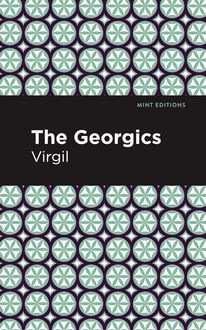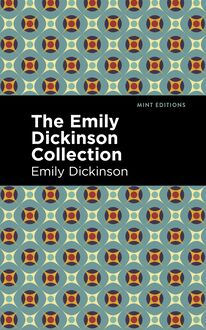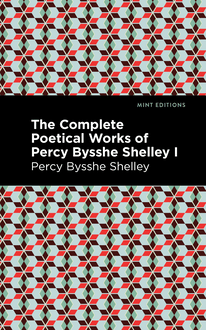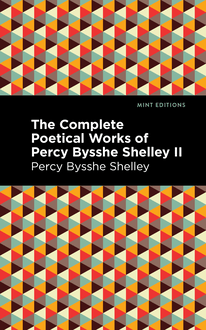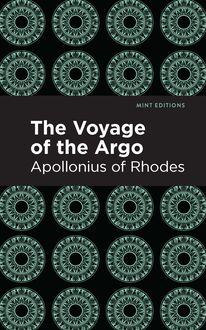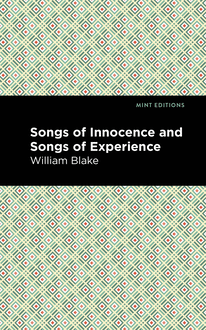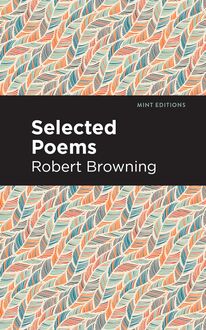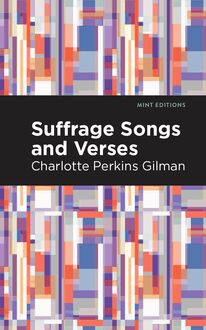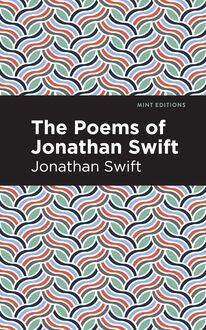-
 Univers
Univers
-
 Ebooks
Ebooks
-
 Livres audio
Livres audio
-
 Presse
Presse
-
 Podcasts
Podcasts
-
 BD
BD
-
 Documents
Documents
-
- Cours
- Révisions
- Ressources pédagogiques
- Sciences de l’éducation
- Manuels scolaires
- Langues
- Travaux de classe
- Annales de BEP
- Etudes supérieures
- Maternelle et primaire
- Fiches de lecture
- Orientation scolaire
- Méthodologie
- Corrigés de devoir
- Annales d’examens et concours
- Annales du bac
- Annales du brevet
- Rapports de stage
La lecture à portée de main
Vous pourrez modifier la taille du texte de cet ouvrage
Découvre YouScribe en t'inscrivant gratuitement
Je m'inscrisDécouvre YouScribe en t'inscrivant gratuitement
Je m'inscrisEn savoir plus
Vous pourrez modifier la taille du texte de cet ouvrage
En savoir plus

Description
Spring and All (1923) is a book of poems by William Carlos Williams. Predominately known as a poet, Williams frequently pushed the limits of prose style throughout his works, often comprised of a seamless blend of both forms of writing. In Spring and All, the closest thing to a manifesto he wrote, Williams addresses the nature of his modern poetics which not only pursues a particularly American idiom, but attempts to capture the relationship between language and the world it describes. Part essay, part poem, Spring and All is a landmark of American literature from a poet whose daring search for the outer limits of life both redefined and expanded the meaning of language itself. “There is a constant barrier between the reader and his consciousness of immediate contact with the world. If there is an ocean it is here.” In Spring and All, Williams identifies the incomprehensible nature of consciousness as the single most important subject of poetry. Accused of being “heartless” and “cruel,” of producing “positively repellant” works of art in order to “make fun of humanity,” Williams doesn’t so much defend himself as dig in his heels. His poetry is addressed “[t]o the imagination” itself; it seeks to break down the “the barrier between sense and the vaporous fringe which distracts the attention from its agonized approaches to the moment.” When he states that “so much depends / upon // a red wheel / barrow,” he refers to the need to understand the nature of language, which keeps us in touch with the world. With a beautifully designed cover and professionally typeset manuscript, this edition of William Carlos Williams’ Spring and All is a classic of American literature reimagined for modern readers.
Sujets
Informations
| Publié par | Mint Editions |
| Date de parution | 03 août 2021 |
| Nombre de lectures | 0 |
| EAN13 | 9781513288048 |
| Langue | English |
| Poids de l'ouvrage | 1 Mo |
Informations légales : prix de location à la page 0,0300€. Cette information est donnée uniquement à titre indicatif conformément à la législation en vigueur.
Extrait
Spring and All
William Carlos Williams
Spring and All was first published in 1923.
This edition published by Mint Editions 2021.
ISBN 9781513283029 | E-ISBN 9781513288048
Published by Mint Editions®
minteditionbooks.com
Publishing Director: Jennifer Newens
Design & Production: Rachel Lopez Metzger
Project Manager: Micaela Clark
Typesetting: Westchester Publishing Services
To
Charles Demuth
C ONTENTS Begin Reading
I f anything of moment results—so much the better. And so much the more likely will it be that no one will want to see it.
There is a constant barrier between the reader and his consciousness of immediate contact with the world. If there is an ocean it is here. Or rather, the whole world is between: Yesterday, tomorrow, Europe, Asia, Africa,—all things removed and impossible, the tower of the church at Seville, the Parthenon.
What do they mean when they say: ,,I do not like your poems; you have no faith whatever. You seem neither to have suffered nor, in fact, to have felt anything very deeply. There is nothing appealing in what you say but on the contrary the poems are positively repellant. They are heartless, cruel, they make fun of humanity. What in God’s name do you mean? Are you a pagan? Have you no tolerance for human frailty? Rhyme you may perhaps take away but rythm! Why there is none in your work whatever. Is this what you call poetry? It is the very antithesis of poetry. It is antipoetry. It is the annihilation of life upon which you are bent. Poetry that used to go hand in hand with life, poetry that interpreted our deepest promptings, poetry that inspired, that led us forward to new discoveries, new depths of tolerance, new heights of exaltation. You moderns! it is the death of poetry that you are accomplishing. No. I cannot understand this work. You have not yet suffered a cruel blow from life. When you have suffered you will write differently?”
Perhaps this noble apostrophy means something terrible for me, I am not certain, but for the moment I interpret it to say: “You have robbed me. God, I am naked. What shall I do?”—By it they mean that when I have suffered (provided I have not done so as yet) I too shall run for cover; that I too shall seek refuge in fantasy. And mind you, I do not say that I will not. To decorate my age.
But today it is different.
The reader knows himself as he was twenty years ago and he has also in mind a vision of what he would be, some day. Oh, some day! But the thing he never knows and never dares to know is what he is at the exact moment that he is. And this moment is the only thing in which I am at all interested. Ergo, who cares for anything I do? And what do I care?
I love my fellow creature. Jesus, how I love him: endways, sideways, frontways and all the other ways—but he doesn’t exist! Neither does she. I do, in a bastardly sort of way.
To whom then am I addressed? To the imagination.
In fact to return upon my theme for the time nearly all writing, up to the present, if not all art, has been especially designed to keep up the barrier between sense and the vaporous fringe which distracts the attention from its agonized approaches to the moment. It has been always a search for ,,the beautiful illusion”. Very well. I am not in search of ,,the beautiful illusion”.
And if when I pompously announce that I am addressed—To the imagination—you believe that I thus divorce myself from life and so defeat my own end, I reply: To refine, to clarify, to intensify that eternal moment in which we alone live there is but a single force—the imagination. This is its book. I myself invite you to read and to see.
In the imagination, we are from henceforth (so long as you read) locked in a fraternal embrace, the classic caress of author and reader. We are one. Whenever I say ,,I” I mean also ,,you”. And so, together, as one, we shall begin.
Chapter 19
O MEAGER TIMES , SO FAT in everything imaginable! imagine the New World that rises to our windows from the sea on Mondays and on Saturdays—and on every other day of the week also. Imagine it in all its prismatic colorings, its counterpart in our souls—our souls that are great pianos whose strings, of honey and of steel, the divisions of the rainbow set twanging, loosing on the air great novels of adventure! Imagine the monster project of the moment: Tomorrow we the people of the United States are going to Europe armed to kill every man, woman and child in the area west of the Carpathian Mountains (also east) sparing none. Imagine the sensation it will cause. First we shall kill them and then they, us. But we are careful to spare the Spanish bulls, the birds, rabbits, small deer and of course—the Russians. For the Russians we shall build a bridge from edge to edge of the Atlantic—having first been at pains to slaughter all Canadians and Mexicans on this side. Then, oh then, the great feature will take place.
Never mind; the great event may not exist, so there is no need to speak further of it. Kill! kill! the English, the Irish, the French, the Germans, the Italians and the rest: friends or enemies, it makes no difference, kill them all. The bridge is to be blown up when all Russia is upon it. And why?
Because we love them—all. That is the secret: a new sort of murder. We make leberwurst of them. Bratwurst. But why, since we are ourselves doomed to suffer the same annihilation?
If I could say what is in my mind in Sanscrit or even Latin I would do so. But I cannot. I speak for the integrity of the soul and the greatness of life’s inanity; the formality of its boredom; the orthodoxy of its stupidity. Kill! kill! let there be fresh meat…
The imagination, intoxicated by prohibitions, rises to drunken heights to destroy the world. Let it rage, let it kill. The imagination is supreme. To it all our works forever, from the remotest past to the farthest future, have been, are and will be dedicated. To it alone we show our wit by having raised in its honor as monument not the least pebble. To it now we come to dedicate our secret project: the annihilation of every human creature on the face of the earth. This is something never before attempted. None to remain; nothing but the lower vertebrates, the mollusks, insects and plants. Then at last will the world be made anew. Houses crumble to ruin, cities disappear giving place to mounds of soil blown thither by the winds, small bushes and grass give way to trees which grow old and are succeeded by other trees for countless generations. A marvellous serenity broken only by bird and wild beast calls reigns over the entire sphere. Order and peace abound.
This final and self inflicted holocaust has been all for love, for sweetest love, that together the human race, yellow, black, brown, red and white, agglutinated into one enormous soul may be gratified with the sight and retire to the heaven of heavens content to rest on its laurels. There, soul of souls, watching its own horrid unity, it boils and digests itself within the tissues of the great Being of Eternity that we shall then have become. With what magnificent explosions and odors will not the day be accomplished as we, the Great One among all creatures, shall go about contemplating our self-prohibited desires as we promenade them before the inward review of our own bowels—et cetera, et cetera, et cetera… and it is spring—both in Latin and Turkish, in English and Dutch, in Japanese and Italian; it is spring by Stinking River where a magnolia tree, without leaves, before what was once a farmhouse, now a ramshackle home for millworkers, raises its straggling branches of ivorywhite flowers.
Chapter XIII
T HUS , WEARY OF LIFE , IN view of the great consummation which awaits us—tomorrow, we rush among our friends congratulating ourselves upon the joy soon to be. Thoughtless of evil we crush out the marrow of those about us with our heavy cars as we go happily from place to place. It seems that there is not time enough in which to speak the full of our exaltation. Only a day is left, one miserable day, before the world comes into its own. Let us hurry! Why bother for this man or that? In the offices of the great newspapers a mad joy reigns as they prepare the final extras. Rushing about, men bump each other into the whirring presses. How funny it seems. All thought of misery has left us. Why should we care? Children laughingly fling themselves under the wheels of the street cars, airplanes crash gaily to the earth. Someone has written a poem.
Oh life, bizarre fowl, what color are your wings? Green, blue, red, yellow, purple, white, brown, orange, black, grey? In the imagination, flying above the wreck of ten thousand million souls, I see you departing sadly for the land of plants and insects, already far out to sea. (Thank you, I know well what I am plagiarising.) Your great wings flap as you disappear in the distance over the pre-Columbian acres of floating weed.
The new cathedral overlooking the park, looked down from its towers today, with great eyes, and saw by the decorative lake a group of people staring curiously at the corpse of a suicide: Peaceful, dead young man, the money they have put into the stones has been spent to teach men of life’s austerity. You died and teach us the same lesson. You seem a cathedral, celebrant of the spring which shivers for me among the long black trees.
Chapter VI
N OW , IN THE IMAGINATION , ALL flesh, all human flesh has been dead upon the earth for ten million, billion years. The bird has turned into a stone within whose heart an egg, unlayed, remained hidden.
It is spring! but miracle of miracles a miraculous miracle has gradually taken place during these seemingly wasted eons. Through the orderly sequences of unmentionable time E VOLUTION H AS R EPEATED I TSELF FROM THE B EGINNING .
Good God!
Every step once taken in the first advance of the human race, from the amoeba to the highest type of intelligence, has been duplicated, every step e
-
 Univers
Univers
-
 Ebooks
Ebooks
-
 Livres audio
Livres audio
-
 Presse
Presse
-
 Podcasts
Podcasts
-
 BD
BD
-
 Documents
Documents
-
Jeunesse
-
Littérature
-
Ressources professionnelles
-
Santé et bien-être
-
Savoirs
-
Education
-
Loisirs et hobbies
-
Art, musique et cinéma
-
Actualité et débat de société
-
Jeunesse
-
Littérature
-
Ressources professionnelles
-
Santé et bien-être
-
Savoirs
-
Education
-
Loisirs et hobbies
-
Art, musique et cinéma
-
Actualité et débat de société
-
Actualités
-
Lifestyle
-
Presse jeunesse
-
Presse professionnelle
-
Pratique
-
Presse sportive
-
Presse internationale
-
Culture & Médias
-
Action et Aventures
-
Science-fiction et Fantasy
-
Société
-
Jeunesse
-
Littérature
-
Ressources professionnelles
-
Santé et bien-être
-
Savoirs
-
Education
-
Loisirs et hobbies
-
Art, musique et cinéma
-
Actualité et débat de société
- Cours
- Révisions
- Ressources pédagogiques
- Sciences de l’éducation
- Manuels scolaires
- Langues
- Travaux de classe
- Annales de BEP
- Etudes supérieures
- Maternelle et primaire
- Fiches de lecture
- Orientation scolaire
- Méthodologie
- Corrigés de devoir
- Annales d’examens et concours
- Annales du bac
- Annales du brevet
- Rapports de stage

